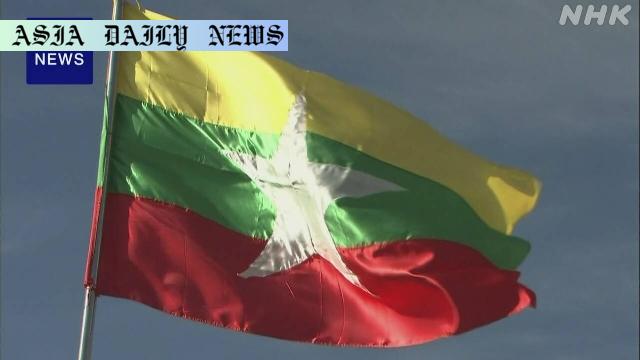Myanmar lifts state of emergency enforced since 2021, opening potential doors to a general election.

Introduction: Myanmar’s Decision to End Emergency Rule
In an announcement that could be a pivotal moment for Myanmar’s future, the country’s military rulers have lifted the state of emergency, which was in place since 2021. This comes after a tumultuous period that began with a military takeover of the civilian government. The decision, initiated by the military leadership, has led to speculation about the nation’s readiness to move forward with a general election, offering a potential path to restore democratic governance. While concerns about long-term stability and political inclusivity remain, this development has undoubtedly brought Myanmar into global discussion.
The Context Behind the State of Emergency
The state of emergency was declared in February 2021, following a military coup that ousted the democratically elected government. This action drew widespread condemnation internationally. During the emergency rule, Myanmar faced numerous challenges, ranging from internal protests and violent crackdowns to international sanctions and economic downturn. The lifting of this emergency signifies a tentative step toward overcoming these crises, though the underlying tensions and divisions within the nation remain unresolved.
Implications for Democratic Transition and General Elections
With the lifting of the state of emergency, discussions surrounding a potential general election have intensified. Myanmar’s military leadership has hinted at upcoming elections but remains vague on the specifics. While this move could be an opportunity to restore democratic processes, there are concerns about the inclusivity and fairness of any such election. Additionally, the international community is closely monitoring how this transition unfolds and whether it meets global standards of democracy.
Challenges Ahead for Myanmar
Despite lifting the state of emergency, Myanmar faces a myriad of challenges. Political divisions remain deeply entrenched, and the legitimacy of the military’s actions over the past two years continues to be questioned. Moreover, economic recovery has been slow, with sanctions and internal strife hampering progress. It is critical for the nation’s leadership to address these grievances while ensuring that inclusive and transparent democratic measures are implemented during the transition period.
Conclusion: A Critical Juncture in Myanmar’s Story
The lifting of Myanmar’s state of emergency is a pivotal moment that could shape its future for years to come. While this decision reflects a willingness to step back from strict military rule, the road to true democracy is fraught with challenges. Whether Myanmar seizes this opportunity to rebuild and reconcile or continues to grapple with instability and division will be determined in the coming months. For the international community, this marks a significant moment to engage constructively with Myanmar and encourage democratic reforms that benefit all its citizens.
Commentary
Reflecting on Myanmar’s Decision: A Step Toward Democracy?
The lifting of the state of emergency in Myanmar brings a mixture of hope and skepticism. On the one hand, this decision indicates a potential willingness by the military rulers to return to a semblance of civilian governance. However, given the events of the past two years, many questions remain about the sincerity and effectiveness of this transition. It is essential to ensure that this move marks the beginning of a genuine effort to restore democracy, rather than a superficial gesture aimed at placating local and international critics.
The Challenge of Building Trust
One of the most significant hurdles for Myanmar is rebuilding trust, both domestically and internationally. Internally, the people of Myanmar have endured violent crackdowns, political oppression, and economic turmoil under the state of emergency. The scars left behind will not heal overnight, and it will take consistent and transparent efforts by the leadership to reassure citizens of their intentions. Internationally, Myanmar’s relationship with other nations has been strained, and practical steps toward compliance with democratic norms will be critical in mending these ties.
A Cautious Optimism for the Future
While challenges abound, there is still room for cautious optimism. The lifting of the state of emergency, if followed by a free and fair election, could mark the beginning of a new chapter for Myanmar. However, this requires unwavering commitment from all stakeholders—political leaders, civil society, and the international community alike. The road ahead will be long and difficult, but with the right approach, Myanmar could see the establishment of a more inclusive and stable political system that benefits all its citizens.


